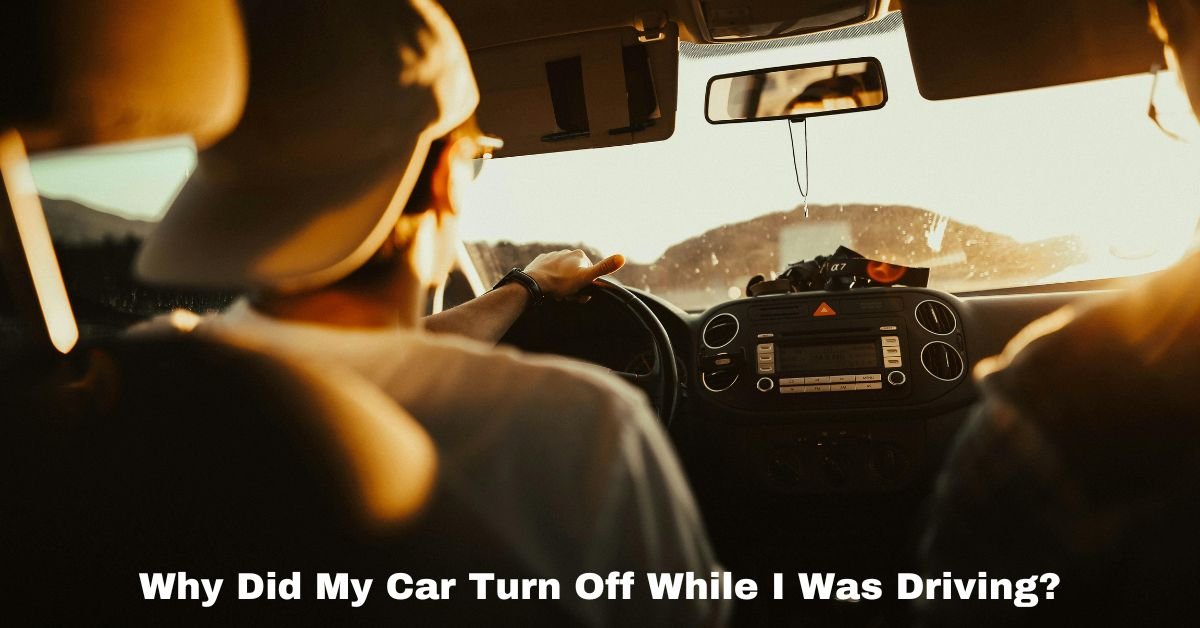It’s one of the most unsettling experiences any driver can have — your car suddenly turns off while you’re cruising down the road. One moment, the engine is running smoothly, and the next, your car is completely powerless. This issue can be alarming, and understandably so. But why does it happen? What could cause your car to shut off while driving? In this post, we’ll explore some of the common reasons behind this problem and how you can prevent it in the future.
Why Did My Car Turn Off While I Was Driving?
1. Faulty Ignition Switch
One of the most common causes of a car shutting off while driving is a faulty ignition switch. The ignition switch is responsible for delivering power to your car’s engine, and if it becomes worn out or damaged, it can interrupt the connection between the engine and the power supply. This may cause your car to shut down unexpectedly, even while you’re on the road.
If you notice that your car occasionally turns off or stalls after starting it, it could be an issue with the ignition switch. The good news is that this issue is relatively simple to fix — a new ignition switch should do the trick.
2. Fuel System Problems
Your vehicle needs a steady supply of fuel to run, and if something goes wrong with your fuel system, your engine may suddenly shut off while you’re driving. The fuel system consists of components like the fuel pump, fuel filter, and fuel injectors. A failure in any of these components can disrupt the flow of fuel to the engine.
For instance, if the fuel pump fails, your engine will stop receiving the fuel it needs, and the car will stall. Similarly, a clogged fuel filter or malfunctioning fuel injectors can cause similar problems. If you suspect a fuel system issue, it’s important to get your car inspected as soon as possible to avoid further damage.
3. Alternator Failure
The alternator is responsible for charging your car’s battery and powering the electrical systems while the engine is running. If the alternator fails, your car may rely solely on the battery to power the engine and electrical systems. Once the battery’s charge is depleted, the car will shut off.
If you notice that your headlights or dashboard lights are flickering, or if your battery warning light comes on, it could be a sign that your alternator is failing. Getting your alternator checked out before it completely fails can prevent a sudden shutdown.
4. Overheating Engine
An overheated engine can cause your car to turn off as a safety precaution. When the engine temperature rises too high, the engine control unit (ECU) may shut off the engine to prevent damage. Overheating can occur due to a variety of reasons, such as a malfunctioning thermostat, low coolant levels, or a damaged radiator.
If you notice that your car’s temperature gauge is climbing into the red zone or if you see steam coming from the hood, pull over immediately to prevent engine damage. Regularly checking the coolant levels and maintaining the cooling system can help prevent overheating issues.
Must Read: Who Are The Top 10 Asphalt Modified Stock Car Drivers?

5. Electrical Issues
A variety of electrical problems can cause your car to shut off unexpectedly while driving. Wiring problems, blown fuses, or damaged sensors can interfere with the car’s operation, causing it to stall. Additionally, modern vehicles have a variety of sensors and electronic components that monitor engine performance. If any of these sensors fail, they may trigger a shutdown.
If you suspect an electrical issue, it’s best to have a professional mechanic conduct a thorough inspection of your car’s electrical system.
6. Bad Battery
A weak or failing battery can also cause your car to turn off while driving. While the alternator charges the battery while the engine is running, a bad battery may not hold enough charge to keep the car running once the alternator is no longer powering it. If your car struggles to start or you’ve noticed that your battery is old, it might be time to replace it.
7. Transmission Problems
Although less common, issues with your car’s transmission can cause the engine to shut off. A malfunctioning transmission can lead to erratic shifting, stalling, or a complete loss of power. If you notice difficulty shifting gears or if the car hesitates before moving, it could indicate a transmission problem.
Conclusion
If your car turns off while driving, it’s important to identify the root cause of the problem. While some issues, like a bad battery, may be relatively easy to fix, others, such as ignition switch failure or fuel system problems, may require professional attention. Regular maintenance, including checking the battery, fuel system, and electrical components, can help prevent these issues from arising. If you find yourself experiencing a sudden shutdown, don’t hesitate to take your car to a trusted mechanic for an inspection.
Remember, staying on top of your car’s health can help keep you safe on the road and prevent unexpected shutdowns.
